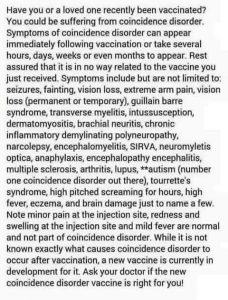Seeking the Post-COVID Sunshine: Through More Feedback on the Growing Income Divide

Although the demands imposed by the Fair Work Commission (FWC) have replaced the excesses of the LNP’s old Work Choices experiments from the Howard era, Australia still has an appalling divide in take-home pay rates between a new generation of working poor and quite comfortably off fellow Australians.
The FWC is still quite upbeat about progress on the wages front in one of its latest news releases. The Labor Opposition can indeed afford to be more proactive in developing alternative wages policies. The web site of the Fair Work Ombudsman offers details of some key recent developments on the wages fronts.
- National minimum wage – of $753.80 per week, calculated on the basis of a week of 38 ordinary hours, or $19.84 per hour.
- Casual loading – of 25 per cent.
- Special national minimum wage 1 – for employees with disability which does not affect their productivity: of $753.80 per week, calculated on the basis of a week of 38 ordinary hours, or $19.84 per hour in the case of an adult, (and who is not a junior employee, or an apprentice, or an employee to whom a training arrangement applies).
- Special national minimum wage 2 – for employees with disability who are unable to perform the range of duties to the competence level required of an employee within the class of work for which the employee is engaged because of the effects of disability on their productive capacity, and who meet the impairment criteria for receipt of a Disability Support Pension (and who is not a junior employee, or an apprentice, or an employee to whom a training arrangement applies): a base rate of pay set in accordance with Schedule A to the National Minimum Wage Order.
- Special national minimum wage 3 – for junior employees: to be based on a percentage of the national minimum wage.
- Special national minimum wage 4 – for apprentices: to be based on the provisions in the Miscellaneous Award 2010 (clause 14) for apprentices (some transitional provisions apply see National Minimum Wage Order).
- Special national minimum wage 5 – for trainees: to be based on the provisions set out in the Miscellaneous Award 2010 (Schedule E) for employees to whom training arrangements apply.
The federal LNP opposed a better wage deal for poorly paid workers in its submissions to the FWC (SBS News 6 April 2021):
The Morrison government has cautioned against a major increase in Australia’s minimum wage, citing concerns about job creation. In a submission to the Fair Work Commission’s annual review, the government notes a continuing uncertain global and domestic economic outlook.
“Higher labour costs during this challenging period could present a major constraint to small business recovery and may dampen employment in the sector,” the submission says. It urges a “cautious” approach that takes into account the importance of job creation and business viability through the economic recovery post-coronavirus.
Policy caution on the wages front by the Morrison Government in the FWC comes with cheers from neoconservative lobby groups such as the National Retail Association, the Restaurant and Catering Industry Association and the National Farmers’ Federation. The Australian Council of Trade Unions which is advocating a minimum wage of $26 an hour plus additional payments offered under current fair work requirements for overtime and casual rate loadings.
Low levels of wages growth are not in the interests of economic recovery. Wages growth indicators are the lowest since the 1930s as shown in March Quarter ABS data.
Low levels of wages growth have negative efforts on superannuation accumulation. For casual employees with less than 30 hours a week employment, there is no responsibility for superannuation commitments as noted by TWU Super:
Under Australia’s Superannuation Guarantee laws, employers are required to pay at least 9.5% super for casual staff who are over 18 years old and earn more than $450 per month, before tax and are not otherwise exempted from Superannuation Guarantee contributions.
These rules also apply to any casuals who do domestic or private work (i.e. not for a business) for more than 30 hours a week, such as nannies and paid carers.
There are additional criteria for those casual employees who are under age 18.
Superannuation must also be paid for any casual employee who is under 18 years of age, works at least 30 hours per week, earns at least $450 per month (before tax) and is not otherwise exempted. This means that employers must pay super for every week that an under-18 casual works 30 hours or more.
Corporate research by McCrindle reveals the consequences of wage suppression for the welfare of the working poor in Australia:
The gap between rich and poor
Income growth has been slow over the last decade. In the ten years leading up to 2017-18, the average weekly household income has only increased $44 to $1,062.
Yet wealth growth has been strong. Average household wealth has increased from $749,000 in 2005-06 up to today’s 1-million-dollar milestone; a rise of 37%.
The average household gross income is $116,584, however the top 20% of households earn 48% of all income. Twelve times more than the bottom 20% who are left with just 4% of Australia’s income. That leaves the middle classes, 60% of Australia’s population, with the other 48% of earnings.
The top 20% also owns just shy of two thirds of Australia’s wealth (63%). To put that into perspective, that’s 92 times more than the average wealth of those who find themselves in the bottom 20% of the population, who own just 1%.
The federal LNP contributes to this income divide by its largesse to comfortably off families by hastening the transition to Phase 3 tax reforms and quite legalized forms of tax avoidance through dividend imputations, writes off for negative gearing of property investments, superannuation top-ups and that those old anomalies associated with family trusts.
As the wealth divide increases, Australia’s nouveau riche has little respect for the FWC’s universal wage standards. Commonplace practices in the dark wage economy include:
- Food deliveries at contractual rates by firms like Uber Eats where workers as contractors wait to accept orders at piecework rates.
- Intrusion of piecework into cleaning services at motel units which return far below the minimum wage rate.
- Prolonged periods of probationary employment including the employment of skilled applicants at assistant rates pending a review of their work productivity.
- Failure to pay casual, weekend and shift loadings to casual part-time workers who are employed on verbal contracts.
Readers might be willing to share their own experiences with such dark workplace practices.
However, the Fair Work Ombudsman is quite upbeat about its capacity to address the depths of despair in the dark economy in wages and employment standards (Assistant Media Director at the Fair Work Ombudsman 4 June 2021):
Any worker seeking advice or information specific to their circumstances can obtain free advice and assistance from the Fair Work Ombudsman by visiting www.fairwork.gov.au or calling the Fair Work Infoline on 13 13 94. A free interpreter service is available by calling 13 14 50. Reports can also be made to the Fair Work Ombudsman anonymously in 16 languages, plus English. We encourage you to urge any relevant workers you speak with to contact us.
Feedback from one security company claimed that failure to pass on penalty rates for long shifts and weekend loadings were quite widespread in the night club security sector in Brisbane. This encourages a race to the bottom in the erosion of wages and employment standards in a very hazardous sector of employment.
The Fair Work Ombudsman (FWO) will make workplace investigations of complaints about wage rates or breaches of working conditions which are covered by workplace contracts. Amendments to the Fair Work Act have indeed tightened the requirements in small business enterprises to notify workers of their rights in relation to casual employment:
As a preventative measure, employers could be directed to advise all workers of their right to contact the FWO in relation to perceived breaches of contractual arrangements in workplaces. This will place pressures on employers to stick adhere to contractual agreements.
Currently, Fair Work Inspectors (FWIs) can also initiate spot checks at employment sites in industries which are prone to fair work breaches. Enforcement operations can be compromised if workers are employed under verbal agreements through ad hoc arrangements between employees and their bosses or work supervisors.
However, the latest annual report of the FWC dies show some progress with enforcement activities:
In 2019–20, as part of our compliance activities, we investigated 1432 workplaces and recovered $7,843,790 in unpaid wages.
Key compliance activities for the 2019–20 year included a series of compliance activities involving popular food precinct areas, including conducting surprise audits of a number of bars in Melbourne’s popular Chapel Street district, in response to allegations (including enquiries and anonymous reports) that workers at venues in the area were being underpaid and not receiving entitlements such as overtime and penalty rates.
The overall non-compliance rate for our audits for the year was 71%, with the most common contraventions relating to:
hourly rate underpayments (12%),
failure to provide payslips in their prescribed form (9%),
penalty rates for weekend work (9%).
The FWC is hardly awash with funding in the 2021-22 budget to address these workplace anomalies. Budget allocations to the FWC have not increased for 2021-22 under the new Attorney-General Michaelia Cash who is responsible for commitments to the FWC. Expenditure remains fixed at $127.4 million. A breakdown of trendlines in allocations for the Fair Work Ombudsman and the Fair Work Inspectorate has been requested and can be added as a footnote to this article if any reply is received.
I have yet to receive advice from the Fair Work Ombudsman about the status of verbal agreements for employment contracts as such arrangements can avoid a transparent paper trail of workplace agreements. Cash wages can also provide mechanisms for illegal tax avoidance of both state and federal taxes particularly in rural employment and small business activities.
Commitment to fair wages and working conditions made Australia a world leader in some categories of industrial relations prior to the Great War (1914-18). Such advances coincided with discrimination in indigenous employment and the misuse of Kanaka labour on the cane-fields of Queensland.
History is of course being re-written by the federal LNP to emphasize military commitments to the British Empire over selective advances in the welfare of working people who twice rejected Billy Hughes’ conscription proposals to the killing fields of Europe and the Middle East. Looks like times have not changed (Paul Daley in The Guardian 29 April 2021):
Lost, like the 125-year-old frontal lobe of Australia’s foreign war-fighting memory that compels some like Dutton (and should his job application succeed, Pezzullo) to focus on the next battlefield before we’ve vacated the last – Afghanistan.
The hawks have the drums of war beating inside their heads all right. And should they blow the whistle, it will be for others to go over the top – while they stay safe, a world away.
 Denis Bright is a member of the Media, Entertainment and Arts Alliance (MEAA). Denis is committed to citizen’s journalism from a critical structuralist perspective. Comments from insiders with a specialist knowledge of the topics covered are particularly welcome.
Denis Bright is a member of the Media, Entertainment and Arts Alliance (MEAA). Denis is committed to citizen’s journalism from a critical structuralist perspective. Comments from insiders with a specialist knowledge of the topics covered are particularly welcome.
Like what we do at The AIMN?
You’ll like it even more knowing that your donation will help us to keep up the good fight.
Chuck in a few bucks and see just how far it goes!










15 comments
Login here Register here-
Andrew J. Smith
-
Marie
-
Leila
-
Paul
-
Stella
-
Lara G.
-
rubio@central coast
-
Chris
-
Pat
-
Tessa_M
-
James Robo
-
skip

-
Terence Mills
-
Denis Bright in Brisbane
-
Denis Bright in Brisbane
Return to home pageInteresting how a couple on the full pension can make about the same as the minimum wage and are more likely to have political pull for further gains with guaranteed minimum income.
This divide is observed elsewhere more starkly in govt. budget transfers and elections which dominated by pensioners and ‘populism’.
This is opposed to youth and/or working age, whether local or temporary residents e.g. international students and backpackers described as ‘immigrants’ have been blamed (forever) for unemployment, low wages, rising rents/house prices, environmental degradation etc.; an excuse to do nothing.
Major issue is not just the lack of behavioural and granular data for analysis and a ‘rich picture’ of work and wages but smoke and mirrors in media when the NOM (net border movements) is translated as ‘immigration’ then assume all have unrestricted work rights, simply not true.
Meanwhile any related issues are simply not presented nor discussed on legacy media e.g. union from each sector explaining the situation, or if they don’t know, why? The latter is an issue now where many retired (and often well off) baby boomers do not seem to understand the situation in workplaces e.g. a friend in lower/middle bank management explained to her shocked siblings that she has not had a pay rise in 3-4 years…….
The weight of opinion, demographics and libertarian economics is going to make it a hard slog for youth when retirees, and those soon to be retired, are catered to by government as a voting cohort to be supported.
It’s difficult to get jobs at the lower end of the pay scale. High school students are so desperate for jobs that they are prone to accepting verbal agreements which avoid penalty rates for longer shifts and weekend work.
Schools should role play appropriate responses in their social education programmes.
Australia is not a leader today in fair work practices. Hopefully, Denis’ article will encourage the working poor to ask for better conditions at a time when our leaders enjoy VIP service on overseas trips with those media opportunities for access to the evening news services here in the presence of great and powerful friends abroad.
In the traditions of that Harvester Judgment of 1907 which insisted on a living wage. Even then it was successfully challenged in the courts by owners of Sunshine Harvesters in Melbourne and Ballarat. but gained a moral appeal that withstood the challenges.
Denis, thanks for an interesting article about the income divide in Australia. It’s an important issue.
Australia too has joined the race to the bottom in wages and working conditions.
Why is this wages divide ignored by the media in favour of irrelevant events like the antics of the G7 in Cornwall who are preparing the Youth for future conflict with China? The ghost of Billy Hughes is still around in all this rhetoric about the Drums of War.
A wealthy country should be prepared to pay its casual and lowly paid workers a living wage.
Working conditions and low pay make many Australians depressed as they are trapped in terrible work situations.
Despite the excesses of the LNP in opposing humane increases in the minimum wage, lots of poorly paid people are not even enrolled to vote.
Well research Denis. Keep up your writing for AIM News.
“The greatest tyrannies are always perpetuated in the name of the noblest causes.” Thomas Paine
“Of all tyrannies, a tyranny sincerely exercised for the good of it’s victims may be the most oppressive.” C.S. Lewis
“When tyranny becomes law, rebellion becomes duty” Thomas Jefferson
Thanks Denis
You say that “The FWC is hardly awash with funding in the 2021-22 budget……”
Do you think that they might be a bit top heavy with :
1 President
2 Vice Presidents
19 Deputy Presidents
20 Commissioners
4 Others
Plus staff
Many of these are LNP mates and failed political aspirants, including Sophie Mirabella as a Commissioner, all drawing a salary. Could be room for some savings there
https://www.fwc.gov.au/about-us/members-case-allocations/list-commission-members
Thanks for the comment about the FWC, Terence.
Staff at the Fair Work Ombudsman were keen to reply on some issues but not on others.
I forwarded some questions on funding of the various branches of the FWC to the Attorney-General staff.
You have offered a good synopsis Terence.
“You say that “The FWC is hardly awash with funding in the 2021-22 budget……”
Do you think that they might be a bit top heavy with :
1 President
2 Vice Presidents
19 Deputy Presidents
20 Commissioners
4 Others
Plus staff
Many of these are LNP mates and failed political aspirants, including Sophie Mirabella as a Commissioner, all drawing a salary. Could be room for some savings there
https://www.fwc.gov.au/about-us/members-case-allocations/list-commission-members ”
I hope other readers check out the recommended site.
That’s why I write for AIM Network: To promote more informed dicussion.
Your assistance is invaluable in extending the outreach of my article.
I am also seeking feedback on the existence of verbal agreements as questionable employment contracts. I came across this ruse at a Gold Coast sub-contracting site where the work contracts were described as “love jobs” at likely cash rates without any FWC standards relating to wages and working hours.
Readers who know about such verbal contrasts should keep everyone informed. I am keen to find out more myself.
Thanks Andrew Smith. There is terrible injustice in youth wages. The FWC fosters exploitation of younger workers through pay rates for junior employees, apprentices, trainees and wokrers on probation. https://www.fwc.gov.au/awards-and-agreements/minimum-wages-conditions/national-minimum-wage-orders.
Youth workers have to unionise to control the race to the bottom in wages and working conditions as current bargaining practices favour the corporate sector.
Less than 5 per cent of youth workers are members of unions. That has to change.